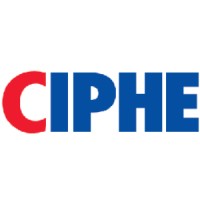The Grand Theatre Blackpool
Theatre’s finance team says: iplicit is going to make everyone’s lives easier
Mark Preston, Finance & Business Manager at Blackpool Grand Theatre, explains why a more modern approach to accounting was needed at the heritage-rich theatre.
Tell me about Blackpool Grand Theatre.
It’s a beautiful Victorian theatre built in 1894. We present Musicals, Comedy, Drama and Dance. As well as putting on shows, we work with local schools and with charitable organisations that are involved with children. We’ve just received Arts Council funding for another three years to help build people’s resilience, which will enable us to expand that work, which we have been supported by Goldsmith Foundation, Esmee Foundation and Ragdoll Foundation in the past.
We do work with primary schools that’s linked to our stage shows. For example, we used the Three Little Pigs story and worked with schoolchildren to find out how they would have changed and improved the narrative.
We’ve also worked with other theatres around the country on this programme, the Royal Shakespeare Company for example.
One occasion springs to mind that really highlights the benefits of this initiative, there was a child that wouldn’t speak in class, wouldn’t participate, and wouldn’t read books. But after the programme, he stood up in an English lesson and recited an act from Shakespeare, complete with different accents and voices. Now, he’s reading books and enjoys acting out stories.
"We knew there was a need to make things more efficient, but we struggled to find a way to achieve that with Sage 50"
What are the day-to-day demands that are typically placed upon your finance system?
Reconciling the shows, reconciling the bank accounts, nominal accounts, and payments. Recently, we’ve also added budgets for the year, which we didn’t have on Sage. Each show is a separate project, and we have both restricted funds and designated funds. Just to add to the confusion, we’ve also got three different companies: Blackpool Grand Theatre Trust Ltd, a charity, that owns and maintains the building and leases it to Blackpool Grand Theatre (Arts & Entertainments) Ltd, which operates the theatre.
Then the Arts & Entertainment company also has a catering subsidiary, because charities aren’t allowed to sell alcohol. So, there’s a lot of inter-company work. iplicit makes that a lot easier by consolidating everything together; there’s no logging out and logging back into a different company like we had to do before, we can just swap between them.
We’re getting a lot more information out of the iplicit system than we ever did with Sage.
What led your decision to change systems?
We had an on-premises server that was end-of-life; it could have fallen over at any time and we’d have lost everything. There was also the cost of servicing and maintenance. So, we’d been looking around for an improved system that was web-based. During the pandemic lockdown, we’d been using remote desktops to access Sage on the server. After the lockdown, we started moving everything off-site onto the cloud. And finance was the last thing to go.
We knew there was a need to make things more efficient, but we struggled to find a way to achieve that with Sage 50.
Why did you choose iplicit over the other systems being considered and did you
have any key criteria?
We looked at Sage 200, and a couple of others that were too expensive or didn’t give the functionality we wanted. The step up to Sage 200 would have been pretty expensive, especially with the paperless option, as that would need an on-site server to build invoices on, with the accounting package in the cloud. That’s two separate systems and we wanted it all in one system.
Also, one of our sister organisations was already on Sage 200 and said it wasn’t working for them. Then we heard about iplicit and we went to them and said "Help! These are our major challenges". They came up with a solution and we thought ‘yes!’
Also, our marketing department does a lot of work with the Arts Council and other theatres to use as much technology as we can. And we were particularly excited about iplicit's project accounting software function, where we can create milestones and tasks for each production. We’re always looking at ways to improve systems and make things more efficient and up-to-date, so migrating to iplicit was a good move.
Since going live with the system, how has your experience been with both the software and iplicit staff?
Our implementation consultant, Ian, has been a great help. It’s going really well, and the software has made things like reconciling nominal accounts so much easier.
From a functionality perspective, what are the major differences with your new system compared to the old one and what benefits have you seen?
Probably 80% of invoices are for the shows, for things like newspaper adverts, magazines, radio, and videos. Before we’d agree a marketing plan with the producer, then somebody would go through all the invoices on the spreadsheet, and then when the invoices came in, match them up with the spreadsheet and put the invoice number in.
Your wonderful tech guys made all that into a ‘marketing plan’ using the project and job costing feature that we’ve got in iplicit now. We create a sales order, listing all the work that we’re going to do. The purchase orders are run off that. When an invoice comes in, it automatically matches up with the PO.
"It’s now all in one place, instead of us having hundreds of spreadsheets all over the place and never being sure whether the spreadsheets are up to date or whether the invoices have arrived."
We can also now reconcile nominal accounts, which we couldn’t do on Sage. So, we were downloading into spreadsheets all the time and faffing around, and some transactions would end up in the wrong place and you’d have to do it all over again.
We didn’t use the automated bank feeds on Sage either because we couldn’t get them working 100%. But we’ve got iplicit working great for all the accounts. It’s all a lot smoother than it was previously.
Do you have a favourite feature within iplicit?
Probably the nominal reconciliation I mentioned before. And the marketing plan feature (project and job costing). We saw that and said ‘yep, that’ll do.’.
What advice would you give other Heads of Finance who are contemplating upgrading their system?
Probably don’t try to do it in a couple of months! Implementation wasn’t exactly rushed, but we did have a short timeframe to get it done. iplicit magically managed to meet our timescales, because another client postponed their implementation and we managed to get their slot.
But I would have planned it a bit better. We had one issue around importing accounts. We had one account called National Literacy Trust on the sales ledger and another called National Publishing on the purchase ledger. Obviously two separate companies but because they both had basically the same code, the computer said no and wouldn’t import them. It was just a simple thing, but it caused absolute chaos because we hadn’t thought about it.
Overall, I think it was five weeks from start to finish to implement. It took quite a bit of work, and it was a bit chaotic at times, but as far as implementations go it went relatively smoothly.
Anything else you'd like to add?
Within probably a week or two we could see we’d made the right decision. iplicit is going to make everyone’s life a lot easier. We’re not chasing invoices around the building anymore. In our previous life, we’d receive maybe 200 invoices every week in the post and we’d have to scan them, code them, and then send them somewhere else for authorising.
Now we can enter and authorise these in one place with iplicit’s workflow authorisation functionality. It’s a far simpler process that gives the finance team far more control and visibility. We can be more productive with our time now and can focus on doing the things that can really add value, so it’s all good.
Related case studies
Want to see iplicit in action?
Book your demo and discover how iplicit can simplify your finance operations, automate manual processes, and give you real-time visibility - wherever you work.









